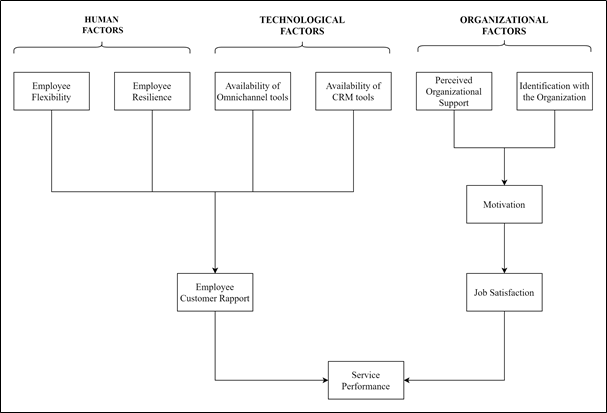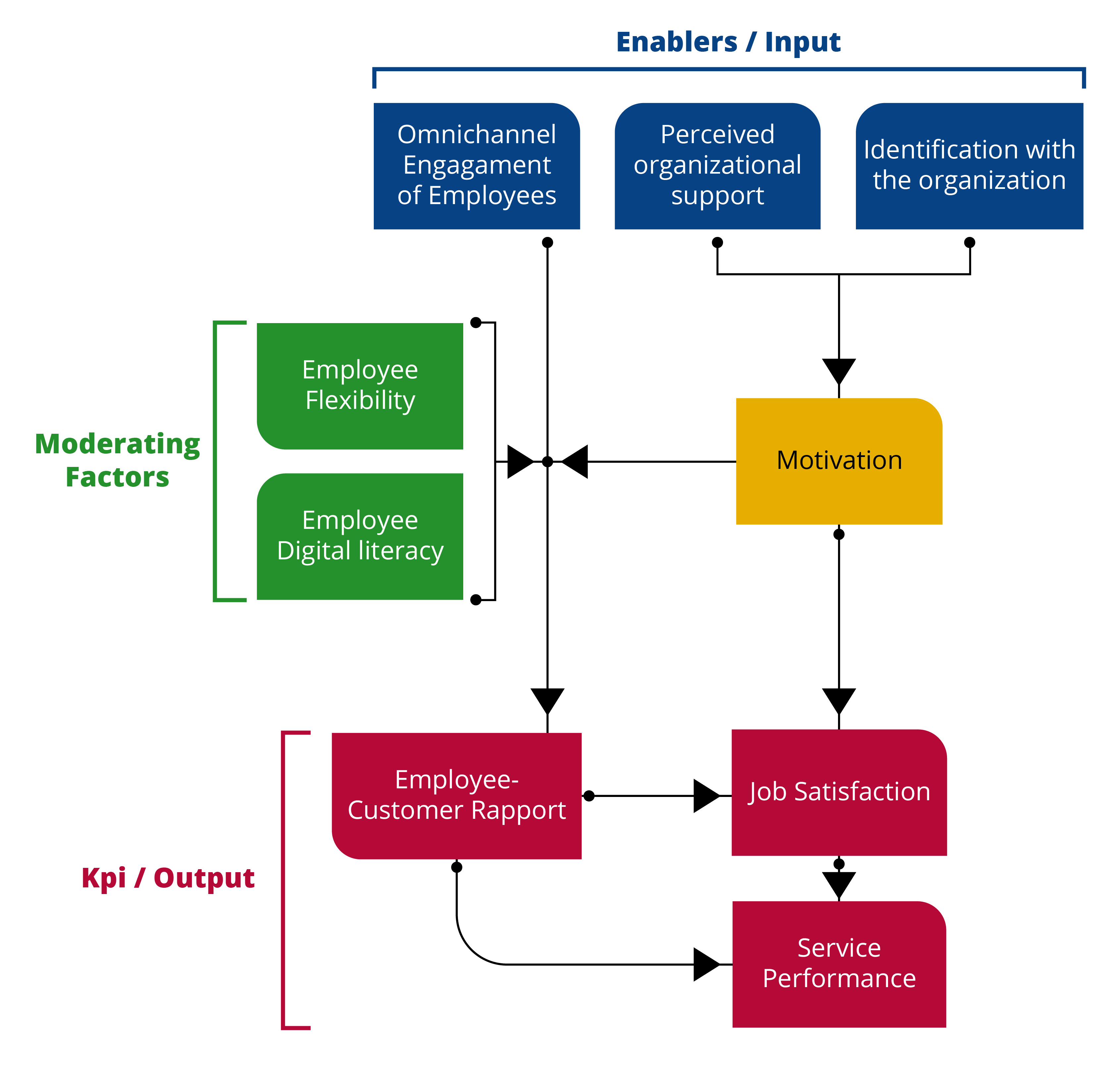
Applied Research
Year 2022
"Retail Service Performance in the post-pandemic: a focus on critical success factors in Italy"
The digital pressure generated by the pandemic has put retail stores under enormous pressure. With the aim of analyzing the critical success factors (CSFs) that have allowed retail businesses to survive and thrive during the pandemic, an analytical model is proposed that analyzes several CSFs focusing on human, organizational and technological factors by relating them to service performance. The results suggest that the human and technological factors are fundamental to improving relationships and thus the customer experience, but technology should be used integratively and not as a substitute for the human factor. The human factor is a source of relational and emotional value that can build trust and loyalty among customers. The technological factor, on the other hand, is an element that can make customer interactions more fluid, accurate, satisfying, and fun.
The organizational factor, in turn, seems to be of primary importance for service performance and acts in
a chain on motivation and job satisfaction. Organizational support (e.g., internal communication, ad hoc training) can help companies better exploit the potential synergies between the human and technical
factors.

Download the Conference Paper
Massara. F., Mason M.C., Zamparo, G. (2022) “Improving Retail Service Performance in Tough Times: A Focus on the Critical Success Factors in Italy”, presentato a Colloquium on European Research in Retailing 2022 (University of Zagreb).
Year 2021
"Turning Challenges into Opportunities During the Covid-19 Pandemic: Fieldnotes From People in Retail"
1) The main issue during the pandemic was ensuring a safe environment for all customers and employees, with companies in different sectors addressing different issues with different solutions;
2) During the pandemic - but also in the future - flexibility will be a key skill required by those who want to work in retail;
3) Digitization and e-commerce, while rapidly increasing, will not replace human interactions in retail, at least in the near future, although the integration and use of technology at physical touch points will be essential.
These issues are reflected in the academic literature and can be appropriately modelled through our contribution to management. More specifically:
1)identifying the variables that are important to the management of human resources in retailing, and 2)summarising the relationships among these variables in a process model that provides specific inputs, outputs, and control variables.
In particular, it is considered useful to measure a set of constructs that form the input-output model shown below, which demonstrates how the critical success metrics identified in the lower part of the diagram can be increased by acting on facilitating factors (omnichannel engagement and employee-company relationship) and controlling critical exogenous moderators such as flexibility and digital literacy, as well as endogenous moderators such as employee intrinsic motivation.
In the second stage of the research, we intend to deepen the findings from the first workshop phase by creating and distributing a questionnaire targeting first-line salespeople and employees.

Download the Conference Paper
Massara. F., Mason M.C., Zamparo, G. (2021) "Turning Challenges into Opportunities During the Covid-19 Pandemic: Fieldnotes From "People in Retail", presented at Sinergie - SIMA Management Conference 2021 (University of Palermo) and Colloquium on European Research in Retailing 2021 (SKEMA Business School).